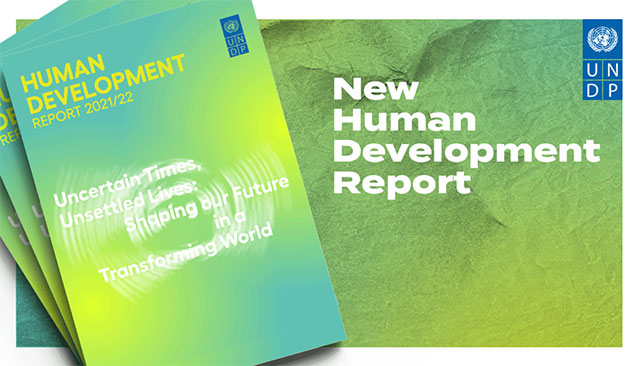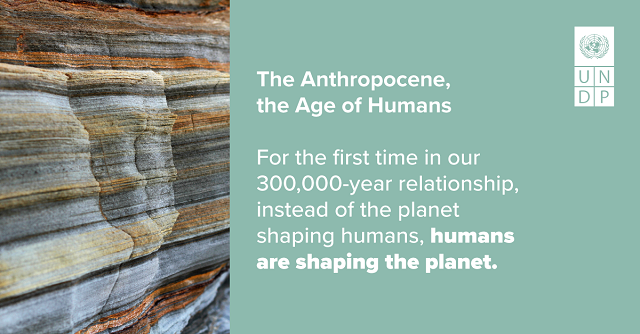Yerevan, 08 September 2022 – Human development has fallen back to its 2016 levels, reversing much of the progress towards the Sustainable Development Goals, argues the 2022 Human Development Report (HDR) entitled – ‘Uncertain Times, Unsettled Lives: Shaping our Future in a World in Transformation,’ launched today by United Nations Development Programme (UNDP). For the first time in the 32 years that UNDP have been calculating it, the Human Development Index (HDI), which measures a nation’s health, education, and standard of living, has declined globally for two years in a row.
Humanity’s biggest challenges – the climate and biodiversity crises, inequalities and political polarization as well as technological upheavals – are piling up and feeding off each other. This is happening at a speed and scale beyond what humans have ever experienced. Uncertainty, inequality and insecurity go hand in hand with political polarization and lack of trust. Globally, less than 30 percent of people think most people can be trusted, its lowest recorded value.
According to the HDR findings, policies that focus on investment, insurance, and innovation will enable people to thrive in the face of uncertainty. Investment – from renewable energy to preparedness for pandemics and extreme natural hazards – to ease planetary pressures. Insurance – including social protection – to prepare our societies for the contingencies of an uncertain world. Innovation in its many forms – technological, economic, cultural – to respond to the unknown challenges that humanity will face.
“In these challenging times UNDP continues supporting Armenia in advancing all aspects of human development across the country in the spirit of leaving no one behind. Based on three decades of strong partnership, today UNDP assists the Government in driving key reforms, including green transition, and social, institutional, and digital transformations, for the benefit of all people in Armenia. We stand ready to expand our joint projects and initiatives, stretching from biodiversity preservation to gender inequality, for accelerating human development progress in the country,” said Natia Natsvlishvili, UNDP Resident Representative in Armenia.
Read also
The report presents the 2021 HDI for 191 countries and UN-recognized territories. Armenia’s HDI value for 2021 is 0.759 – which put the country in the high human development category – positioning it at 85 out of all countries and territories. Between 1990 and 2021, Armenia’s HDI value changed from 0.656 to 0.759, a change of 15.7 percent. Between 1990 and 2021, Armenia’s life expectancy at birth changed by 3.2 years, mean years of schooling changed by 1.5 years and expected years of schooling changed by 2.2 years. Armenia’s GNI per capita changed by about 152.5 percent between 1990 and 2021.
In 2010, the Inequality-adjusted Human Development Index (IHDI) was introduced, which considers inequalities in all three dimensions of the HDI by ‘discounting’ each dimension’s average value according to its level of inequality in the distribution. The ‘loss’ in human development due to inequality is given by the difference between the HDI and the IHDI. As the inequality in a country increases, the loss in human development also increases. Armenia’s loss due to inequality is 9.4 percent, which lowers the HDI to 0.688 in 2021.
In terms of gender-based inequalities in three key dimensions – reproductive health, empowerment, and economic activity, Armenia’s Gender Inequality Index (GII) value is 0.216, ranking it 53 out of 170 countries in 2021. Reproductive health is measured by maternal mortality ratio and adolescent birth rates; empowerment is measured by the shares of parliamentary seats held and population with at least some secondary education by each gender; and labour market participation is measured by the labour force participation rates for women and men.
The three frontrunners in the 2022 global HDI rankings are Switzerland, Norway and Iceland.
To learn more about the 2022 HDR, visit

























































